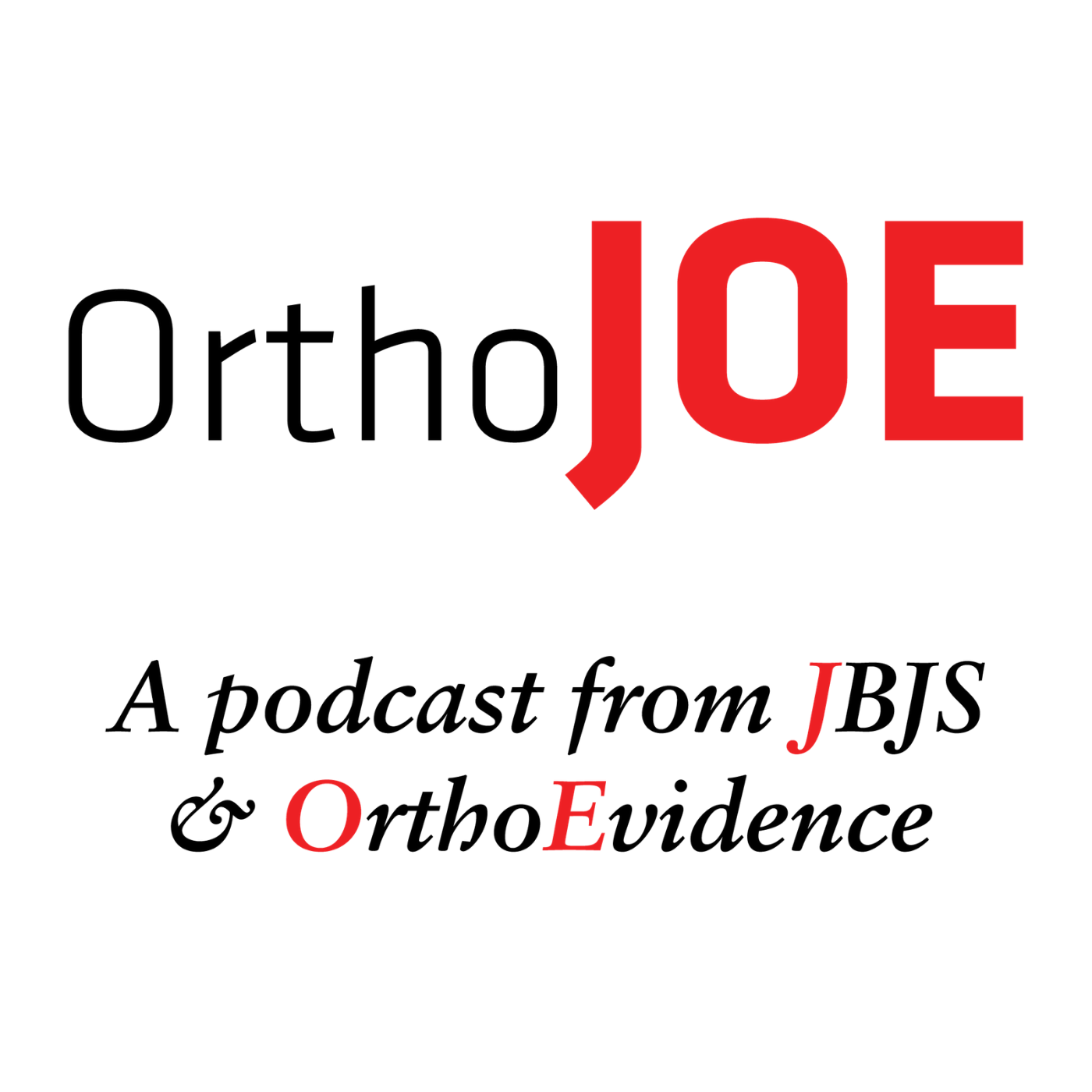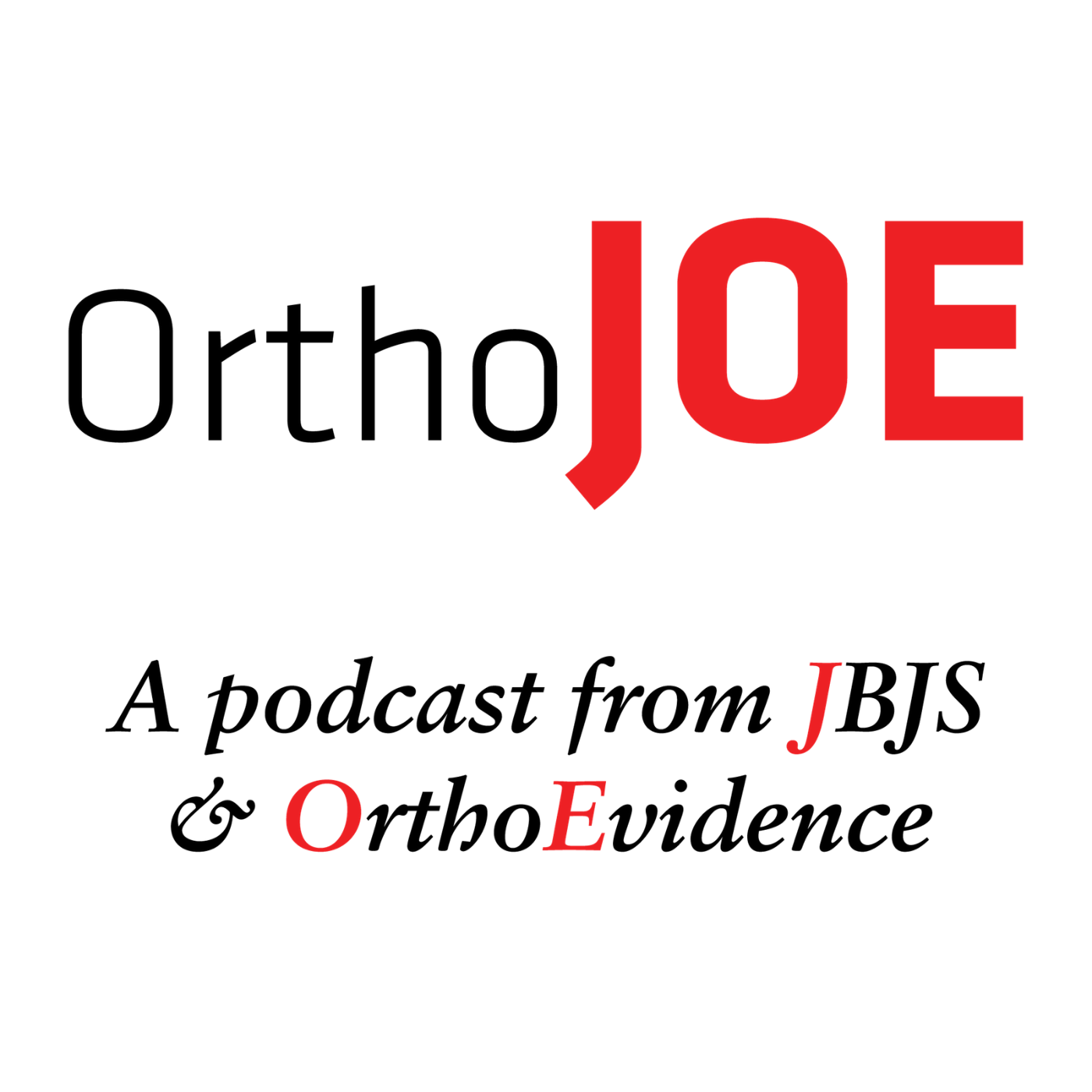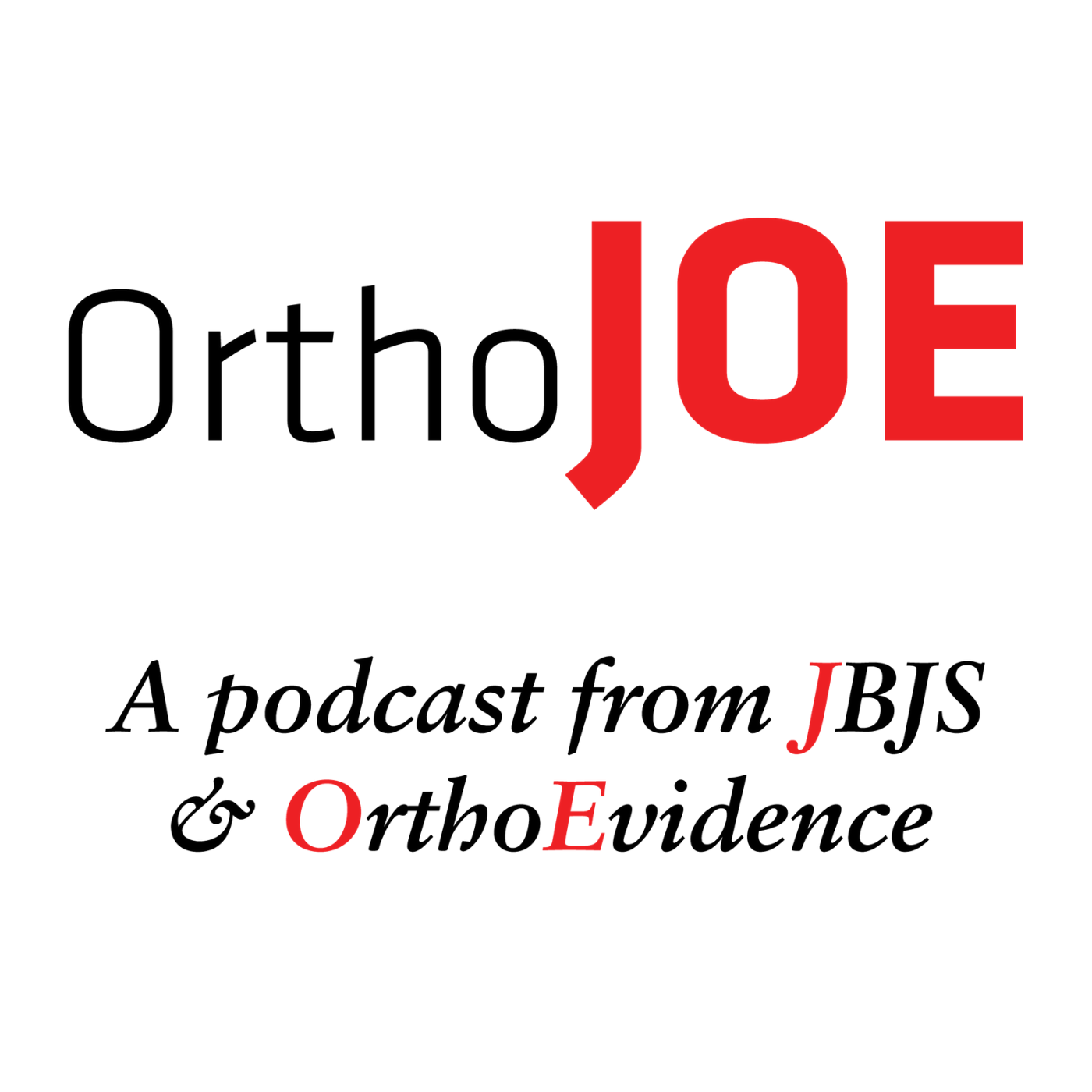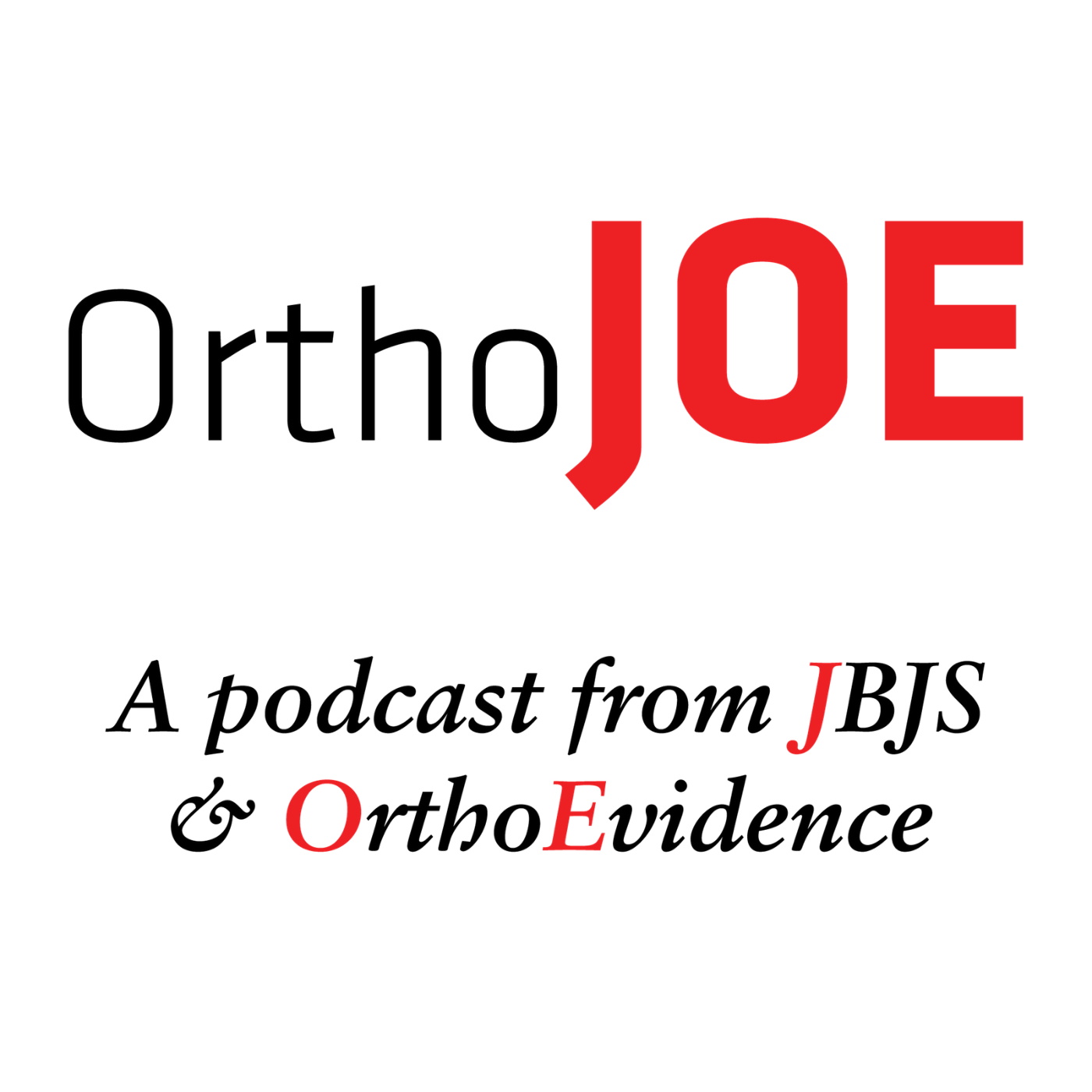Show Notes
Welcome to the OrthoJOE podcast with Dr. Marc Swiontkowski and Dr. Mohit Bhandari. In this episode of OrthoJOE, Marc and Mo discuss the RCTs (or randomized control trials) on common injuries like distal radial fractures. There is a huge amount of work involved in these. Should our focus be elsewhere? Is there such a thing as too many RCTs on the same topic?
Marc and Mo also talk about the data and their findings in recent scientific journals, including their own JBJS and Orthoevidence articles. "Cost-effectiveness studies'' are increasingly popular, with submissions doubling every 18 months. Orthopaedic surgeons must "own the bone" when treating distal radial fractures, which should be seen as a sentinel event for investigating overall bone health.
If you have any comments, questions, or topics you would like us to cover, please feel free to reach out so we can read your messages and possibly answer your questions during the next episode of OrthoJOE. We are currently working on a better mailbag system. However, in the meantime, you can contact us through our respective websites (MyOrthoEvidence and JBJS).
Talking Points:
- RCTs on distal radial fractures
- The cost-effectiveness of certain studies
- Getting the appropriate dialogue going
- The upsides and downsides to “expertise-based trials”
- Novel angles for future trials
- The AOA’s “Own the Bone” Program and focusing on poor bone quality
Resources/Links:
- Ludvigsen T, Matre K, Gudmundsdottir RS, Krukhaug Y, Dybvik EH, Fevang JM. Surgical Treatment of Distal Radial Fractures with External Fixation Versus Volar Locking Plate: A Multicenter Randomized Controlled Trial. J Bone Joint Surg Am. 2021 Mar 3;103(5):405-414. doi: 10.2106/JBJS.20.00275. PMID: 33369985. https://pubmed.ncbi.nlm.nih.gov/33369985/
- Rajan PV, Qudsi RA, Dyer GSM, Losina E. The Cost-Effectiveness of Surgical Fixation of Distal Radial Fractures: A Computer Model-Based Evaluation of Three Operative Modalities. J Bone Joint Surg Am. 2018 Feb 7;100(3):e13. doi: 10.2106/JBJS.17.00181. PMID: 29406347; PMCID: PMC6819022. https://pubmed.ncbi.nlm.nih.gov/29406347/






